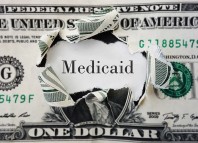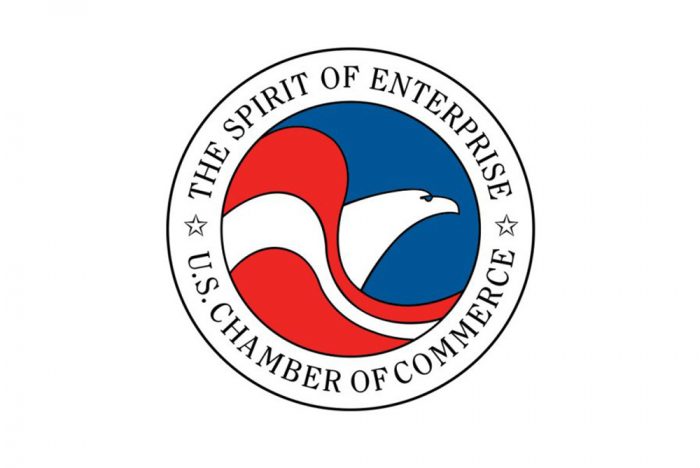OMHSAS June Provider Stakeholder Meeting — Registration Open
SAVE THE DATE for the next OMHSAS stakeholder meeting, scheduled for Tuesday, June 15, 2021 from 3:00 pm–4:00 pm. This webinar will be directed to providers, provider affiliates and associations, and consumers, family members, and advocate stakeholders. The next webinar for counties and county affiliates is scheduled for Friday, June 11, 2021 from 1:00 pm–2:00 pm. We ask stakeholders to join in only one monthly meeting, the meeting which would best suit their interests.
If you have suggestions for agenda topics, please submit them via email to OMHSAS. We will monitor the account and will reply to the sender if more information is required. Please be advised that responses will not be provided if additional information is not needed.
Please register for the OMHSAS Provider/Provider Affiliate/Advocate Stakeholder Meeting on June 15, 2021 at 3:00 PM EDT.
After registering, you will receive a confirmation email containing information about joining the webinar. If you have any questions, please contact your RCPA Policy Director.
House Votes to End Governor’s Pandemic Disaster Declaration
Wolf Administration Outlines Guidance For Children Not Yet Eligible To Receive COVID-19 Vaccine And Their Families

DHS Releases Research and Resources for People with IDD, Autism and Mental Health and Behavioral Challenges
Harrisburg, PA – The Pennsylvania Department of Human Services (DHS) today released the latest issue of the Positive Approaches Journal, which aims to provide the most recent research and resources for people with mental health and behavioral challenges, intellectual disabilities, autism, and other developmental disabilities to live an everyday life. This edition focuses on sexuality and connectedness.
“Part of DHS’ mission is to ensure that people, regardless of disability, have the resources and information they need to live an everyday life. But too often, people with intellectual and developmental disabilities do not receive the support or education they need to be safe and healthy while exploring and experiencing social connections and sexuality,” said Acting DHS Secretary Meg Snead. “We hope that this edition of the Positive Approaches Journal will provide some of those resources and will chip away at myths and misconceptions about socialization and sexuality within the disability community.”
This edition features research and articles on the following:
- Embracing Inclusion: Prioritizing LGBTQIA+ Inclusion for People with Intellectual and Developmental Disabilities: This article outlines the barriers and lack of supports that LGBTQIA+ people with disabilities face and emphasizes the importance of recognizing the needs of people who live at the intersection of these two identities.
- Responding to the Victimization of Individuals with Intellectual Disabilities and Autism: This article details how sexual education and resources for people with disabilities can improve relationships and reduce the risk of victimization.
- Detangling Sexuality Information: Misinformation, Confusion or Hope: This article outlines the importance of comprehensive sexual education, as lack of such education can create a dangerous lack of understanding of consequences and a misinterpretation of sexual nuances.
- Approaching Sexuality in Service Spaces: An Invitation to Deeper Inquiry: This article explores ways both behavioral health providers and clients can express vulnerability in discussing sexuality and the sensitivities that surround it.
- Building a Socially Fulfilling Life with a Mental Health Diagnosis: A Firsthand Perspective: A Certified Peer Specialist’s personal story of how helping others in managing their mental health was a crucial part of understanding social needs and their own recovery.
- Social Skills for the “Real World”: Lessons Learned from the Autism Services, Education, Resources and Training (ASERT) Social Skills Groups: This article highlights research on effective social skills intervention methods to help caretakers address identified challenges for those with Autism Spectrum Disorder.
The journal is a collaboration of DHS’ Office of Developmental Programs and Office of Mental Health and Substance Abuse Services and collects resources, observations, and advancements in mental and behavioral health in order to better serve people with dual diagnoses in their communities.
Read this edition of the Positive Approaches Journal.
For more information visit DHS’ website.
MEDIA CONTACT: Erin James
Covid Was a Tipping Point for Telehealth. If Some Have Their Way, Virtual Visits Are Here to Stay.
U.S. Chamber Of Commerce Launches Plan To Address Worker Shortage
Resuming In-Person Visits During COVID-19: Tips for Identifying Trauma, Potential Abuse, and Supporting Residents
ACL will host a webinar in recognition of World Elder Abuse Awareness Day on Wednesday, June 16 at 3:00 pm ET. Dr. Laura Mosqueda, a national and international expert on elder abuse and neglect, will present. Register here to participate.
Financial Management Services Stakeholder Meeting Planned for June 28
A Financial Management Services (FMS) Stakeholder meeting has been scheduled for Monday, June 28, 2021, from 11:00 am – 12:30 pm. This purpose of this public meeting is to discuss the upcoming changes for the administration of FMS under the Community HealthChoices (CHC), OBRA Waiver, and Act 150 programs. There will be representatives from OLTL and the CHC Managed Care Organizations (MCOs) in attendance to discuss the upcoming changes.
To participate, please select one of the following options:
Join from the meeting link
https://pa-hhs.webex.com/pa-hhs/j.php?MTID=m15e2e495a802f00df6fa38c9e645237d
Join by meeting number
Meeting number (access code): 132 280 2499
Meeting password: Stakeholder
Tap to join from a mobile device (attendees only)
+1-408-418-9388,,1322802499## United States Toll
+1-202-860-2110,,1322802499## United States Toll (Washington D.C.)
Join by phone
+1-408-418-9388 United States Toll
+1-202-860-2110 United States Toll (Washington D.C.)
Global call-in numbers
Join from a video system or application
Dial 1322802499@pa-hhs.webex.com
You can also dial 173.243.2.68 and enter your meeting number.
Questions about the meeting should be directed to this email.
RCPA & Lockton Companies Present Cybersecurity in Health Care Webinar June 25
RCPA members are invited to join the next Member Update Webinar on Friday, June 25, 2021 from 10:00 am – 12:00 pm. We are pleased to offer a presentation on Cybersecurity in Health Care, sponsored by Lockton Companies. The presentation will provide members with a better understanding of the FBI’s perspective on nefarious cyber techniques and trends targeting the health care industry, and discuss how health care industry employers can streamline and improve the training and skills of their employees to protect the organization from cyber-attacks.
Cybersecurity in Health Care
In October 2020, the FBI warned that the US health care system is urgently vulnerable to cyber-attacks to an unprecedented magnitude. While COVID cases continue, the US health care sector saw a 71 percent increase in ransomware attacks in October, compared to September. At the same time, a 2020 study by Emsi, a national labor analytics firm, found that the demand for cybersecurity professionals is twice as great as the supply in the job market. Because of this shortage, the study recommends that employers focus time and money in training and promoting current employees within the organization to best protect the business from cyberattack.
Presenters include:
- Paul Bingham, Associate Dean in the College of IT and Academic Program Director for the Western Governors University (WGU) cybersecurity degree
- Cerena Coughlin, FBI Special Agent, Employment Recruiter and Applicant Coordinator for the Philadelphia Field Office
- Al Wilson, Information Security Specialist at Children’s Hospital of Philadelphia
- Caroline Chapman, Assistant Vice President, Account Manager and member of the Cyber Technology Practice within Lockton Financial Services
Please register here to attend this webinar. We look forward to your participation!
















